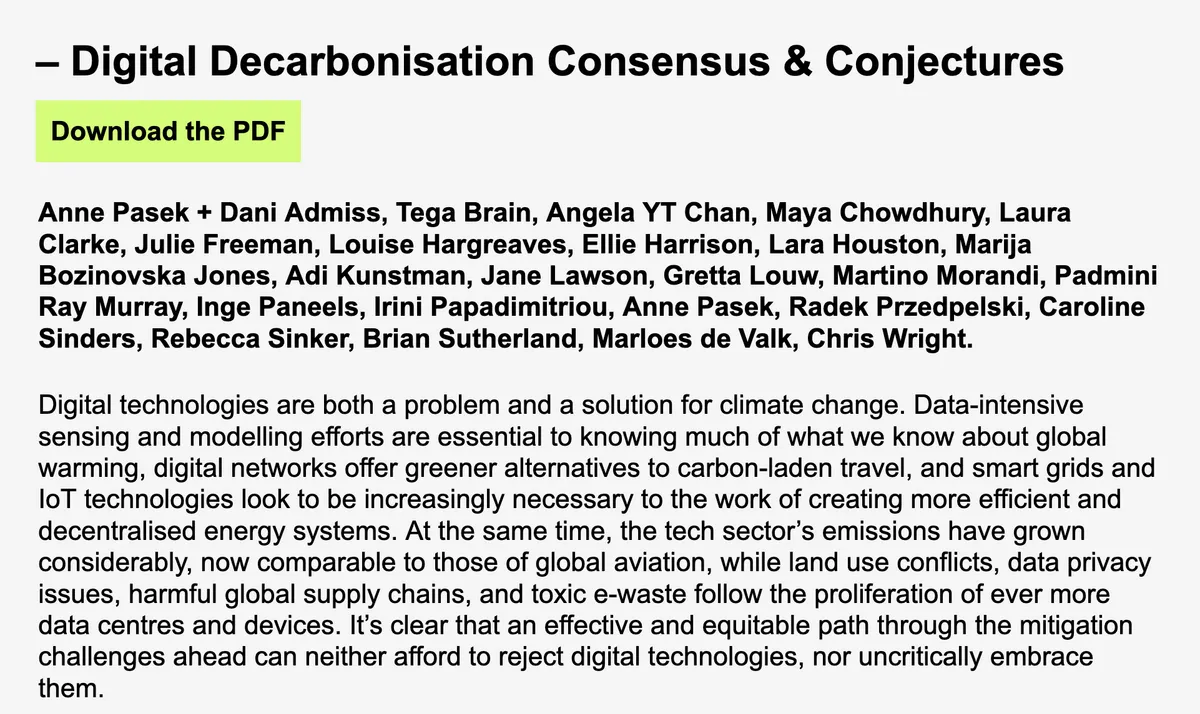I joined 23 other arts practitioners, led by Anna Pasek to bring together a collective ‘Decarbonisation and the Arts Consensus Statement.’ The collaborative gathering and workshopping spoke insightfully to working in this space: working and experimenting with digital media technologies while remaining aligned to opposing the social and climate injustices we operate in; navigating capacities individually, collectively and around institutions, and importantly, being creatively inventive to the climate issues beyond only the metrics of ‘sustainability.’
“Digital technologies are both a problem and a solution for climate change. Data-intensive sensing and modelling efforts are essential to knowing much of what we know about global warming, digital networks offer greener alternatives to carbon-laden travel, and smart grids and IoT technologies look to be increasingly necessary to the work of creating more efficient and decentralised energy systems. At the same time, the tech sector’s emissions have grown considerably, now comparable to those of global aviation, while land use conflicts, data privacy issues, harmful global supply chains, and toxic e-waste follow the proliferation of ever more data centres and devices. It’s clear that an effective and equitable path through the mitigation challenges ahead can neither afford to reject digital technologies, nor uncritically embrace them.
At this juncture, media artists and arts institutions are uniquely positioned to act. In both negotiating technocratic reporting requirements and tabling more equitable and politically capacious responses to the problems and opportunities of digital media and carbon emissions, the arts can act as a testing ground and source of aesthetic and relational provocations for wider questions of climate justice.
This workshop gathered stakeholders in the arts sector to evaluate the challenges and opportunities they face at the conjuncture of digital technologies and environmental justice. Participants proposed, reviewed, and debated different proposals for climate action in their sector, mapping the political and material impacts of digital decarbonisation strategies on workers, communities, institutions, and the climate. Discussions culminated in the drafting of a set of consensus statements that diagnose the intersecting problems at hand and propose clear directions for stakeholders going forward.”
Find out more here
